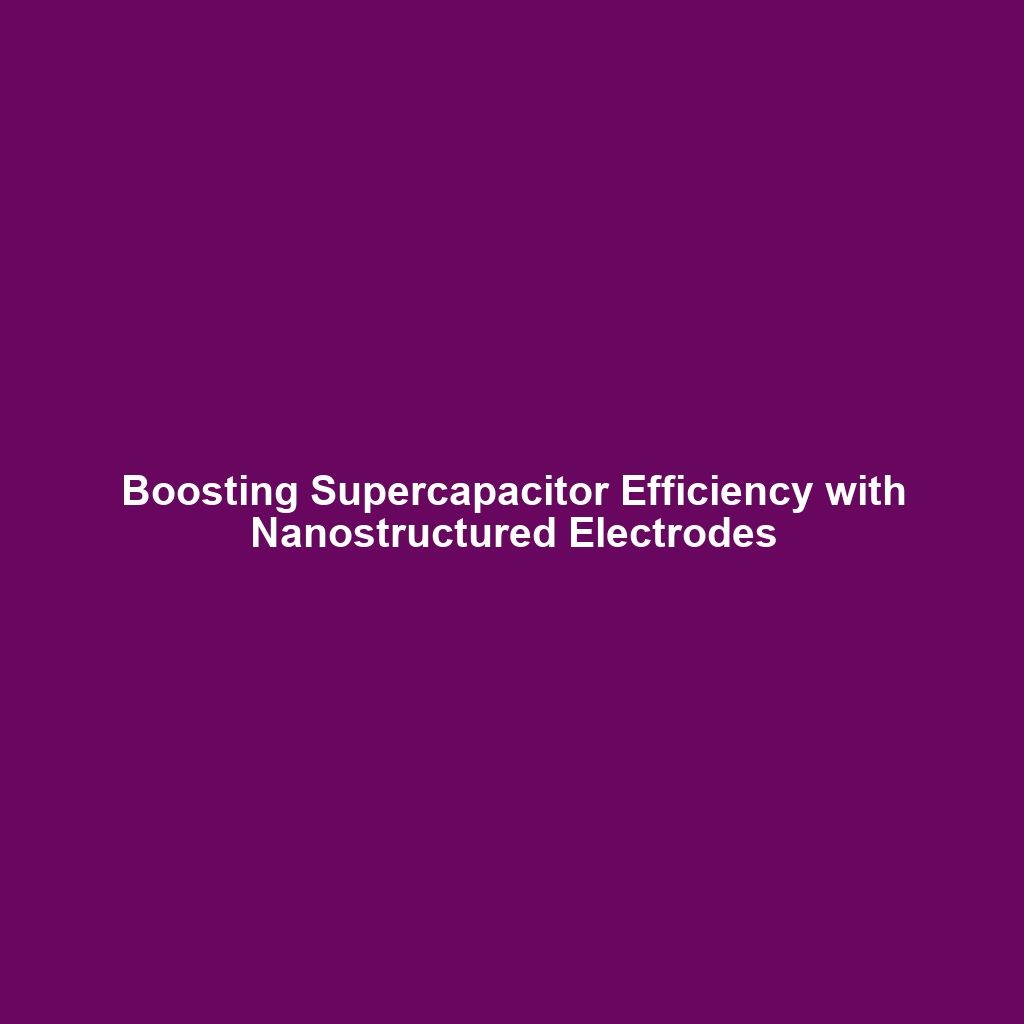Nanostructured Electrodes Increase the Efficiency of Supercapacitors for Fast Energy Storage
Introduction
In the realm of Advanced Nanomaterials, the development of nanostructured electrodes represents a significant advancement in energy storage technology. These electrodes play a crucial role in enhancing the performance of supercapacitors, allowing for rapid energy storage and release, which is essential for modern applications ranging from electric vehicles to renewable energy systems. By leveraging the unique properties of nanomaterials, researchers are able to push the boundaries of efficiency and capacity, making fast energy storage a viable solution for today’s energy demands.
Key Concepts
Understanding Nanostructured Electrodes
Nanostructured electrodes are made up of materials at the nanoscale that exhibit improved surface area, conductivity, and electrochemical properties. Key concepts include:
- Surface Area Amplification: The increased surface area of nanostructured materials allows them to store more charge.
- Electrical Conductivity: Enhanced electrical conductivity improves charge and discharge rates, leading to faster energy storage.
- Electrochemical Performance: Nanostructured materials exhibit superior electrochemical behaviors compared to their bulk counterparts.
This technological evolution is at the forefront of Advanced Nanomaterials, enabling enhanced performance in supercapacitors and the overall energy storage landscape.
Applications and Real-World Uses
The applications of nanostructured electrodes in supercapacitors are vast and varied, impacting numerous sectors:
- Electric Vehicles (EVs): Fast charging and discharging capabilities improve the efficiency of energy storage systems in EVs.
- Renewable Energy Systems: Integration with solar panels and wind turbines for effective energy management.
- Consumer Electronics: Powering portable electronic devices with increased durability and performance.
These practical uses demonstrate how nanostructured electrodes impact supercapacitors in the field of Advanced Nanomaterials.
Current Challenges
Despite their benefits, several challenges exist in the study and application of nanostructured electrodes:
- Manufacturing Consistency: Producing uniform nanostructured materials at scale remains a technical challenge.
- Cost Implications: Advanced materials can lead to higher production costs, impacting commercial feasibility.
- Long-term Stability: The durability of nanostructured materials in harsh operating conditions can be a concern.
These issues present significant challenges for the continued advancement of nanostructured electrodes in supercapacitors and Advanced Nanomaterials.
Future Research and Innovations
The future of nanostructured electrodes and supercapacitors is bright, with ongoing research focusing on:
- Next-Generation Materials: Development of new nanomaterials that further enhance performance metrics.
- Doping Techniques: Employing various dopants to improve conductivity and mitigate material degradation.
- Hybrid Systems: Combining supercapacitors with batteries for advanced energy storage solutions.
These innovations will likely drive enhancements in Advanced Nanomaterials and their applications in energy storage technologies.
Conclusion
In summary, nanostructured electrodes significantly increase the efficiency of supercapacitors for fast energy storage, representing a critical advancement within Advanced Nanomaterials. As research continues to address existing challenges and explore new innovations, the potential for practical applications will only grow, providing solutions to modern energy needs. For more insights into cutting-edge technologies, explore our other articles on Advanced Nanomaterials or Energy Storage Solutions.
